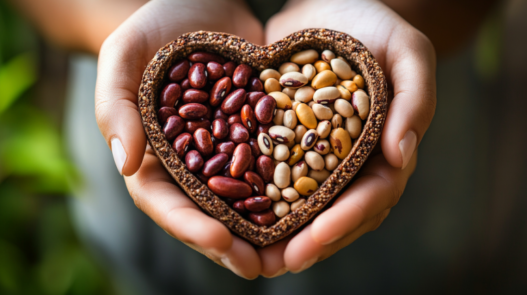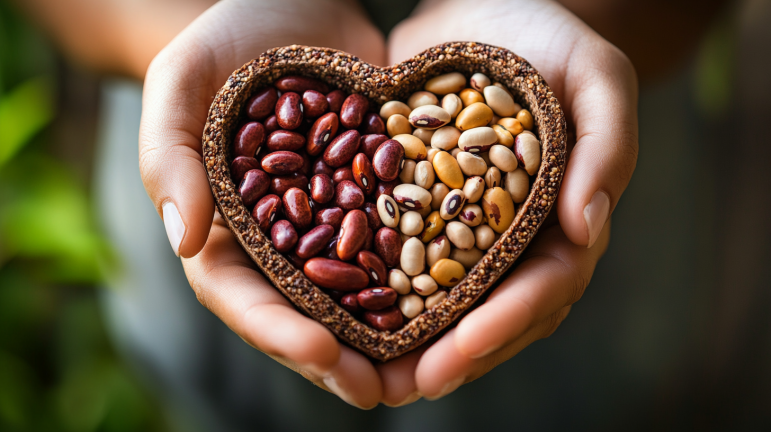When protein comes to mind, many immediately think of animal-based sources like meat, eggs, and milk. But just like a house needs bricks and mortar for structure, our muscles, skin, and even hair rely on protein to stay strong. Protein comes from two main sources in our diet: animal protein (from meat, eggs, and dairy) and plant protein (from beans, grains, and nuts).

In recent years, numerous studies have revealed that plant-based proteins offer exceptional benefits for heart health and longevity. Let’s dive into why you should consider making more room for plant protein in your meals.
Studies Confirm: Plant Protein Improves Heart Health and Increases Longevity
In December 2024, a research team from Harvard University published a study in the American Journal of Clinical Nutrition that highlighted a significant connection between increased plant protein consumption and improved heart health. The study showed that people who consumed more plant protein (compared to animal protein) had a 19% reduction in cardiovascular disease risk and a 27% reduction in the risk of coronary heart disease.
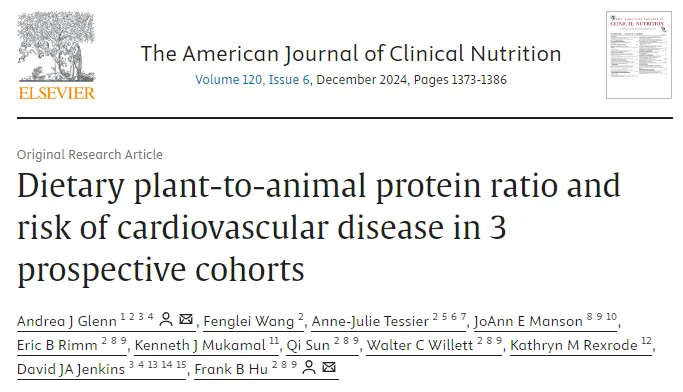
Research screenshots
The study tracked over 200,000 participants for 30 years. Out of these, 16,118 developed cardiovascular conditions. The results were clear: increasing the proportion of plant protein in the diet led to a reduced risk of heart disease. For instance, swapping just 3% of animal protein with plant-based protein resulted in an 18% reduction in cardiovascular disease risk and a 24% reduction in coronary heart disease risk. This was especially true when the plant protein was sourced from high-quality foods like nuts and legumes.
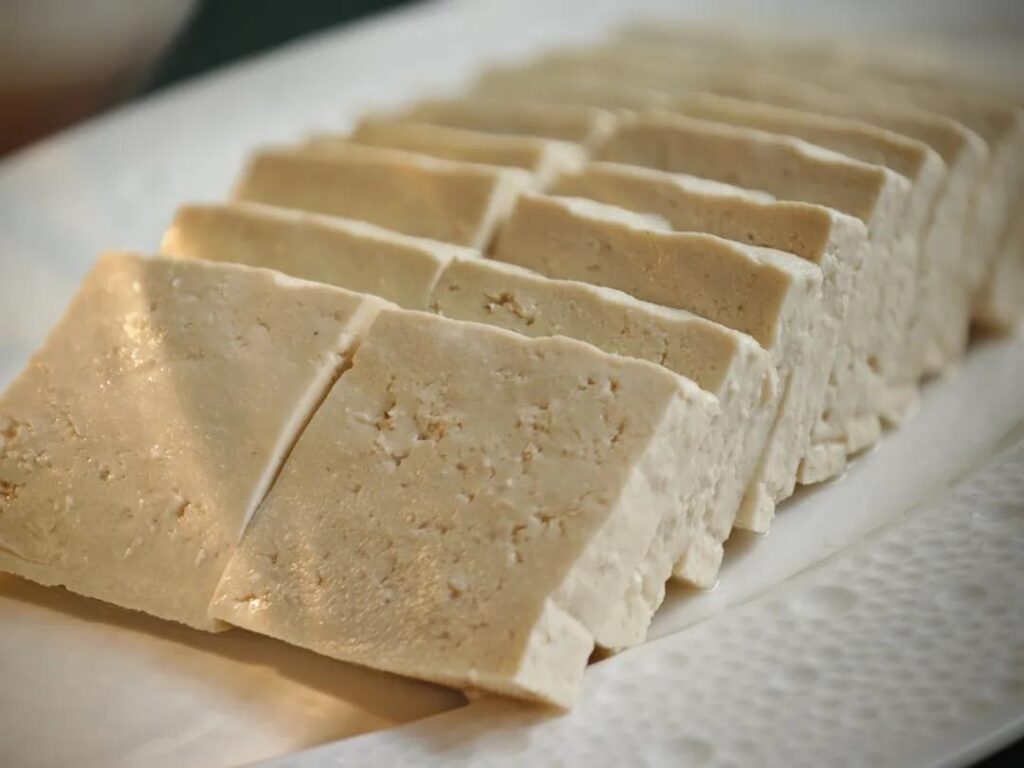
Not only does plant protein help protect the heart, but it also has the potential to extend lifespan. A 2024 study by Harbin Medical University published in the European Journal of Nutrition found that higher plant protein intake is associated with slower aging.
Moreover, research from Canadian scientists in Nature Food (published in February 2024) showed that replacing red meat, processed meats, and dairy with plant protein could reduce the risk of chronic diseases and prolong life. Participants who swapped 50% of red meat and processed meat for plant-based protein saw an increase in life expectancy by 8.7 months and 7.6 months, respectively.
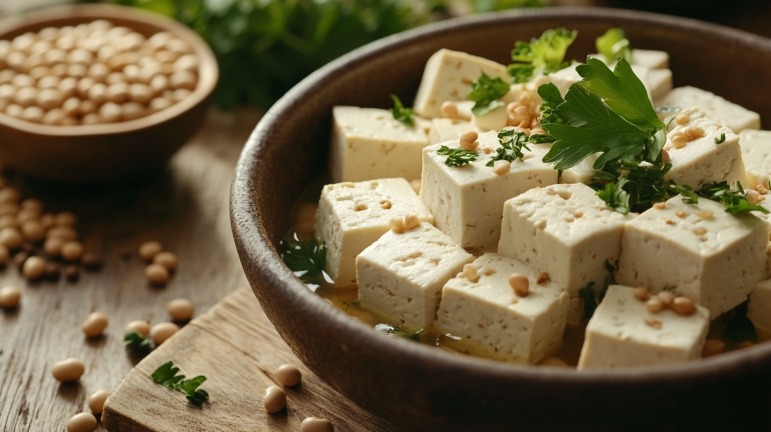
Plant Protein vs. Animal Protein: Why Plant Protein Wins
The saying “eating beans is better than eating meat” is something that modern science has now affirmed. Plant proteins come with several natural advantages when compared to their animal counterparts.
1. Cholesterol-Free – Protect Your Heart from Cholesterol
For individuals with high cholesterol or heart disease, doctors often recommend reducing cholesterol-rich foods. The good news is that plant protein is virtually cholesterol-free, making it an ideal choice for anyone looking to lower their cholesterol levels and reduce the strain on their cardiovascular system.

2. Low in Saturated Fat – Safeguard Your Heart Health
Unlike the proteins found in pork, beef, and lamb, plant proteins are low in saturated fats. Excessive intake of saturated fats can increase blood cholesterol levels, raising the risk of atherosclerosis, coronary heart disease, and other cardiovascular conditions over time.
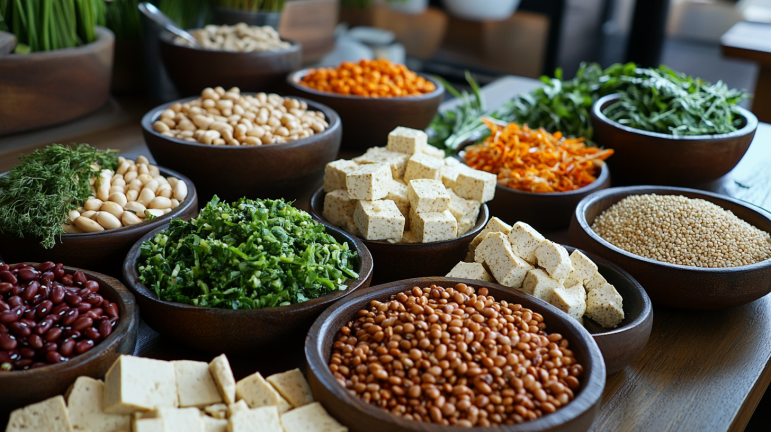
3. Rich in Dietary Fiber – Support Your Digestive Health
One of the most common dietary deficiencies today is insufficient fiber intake. Plant-based proteins are often packed with fiber, helping to improve digestion, alleviate constipation, and regulate blood sugar levels. Fiber also helps reduce the risk of chronic diseases like diabetes and colon cancer.

4. Lactose-Free – Ideal for Lactose Intolerant Individuals
For those with lactose intolerance, consuming dairy can cause digestive discomfort. Since plant protein is naturally lactose-free, it offers a perfect alternative for people who cannot tolerate dairy products.
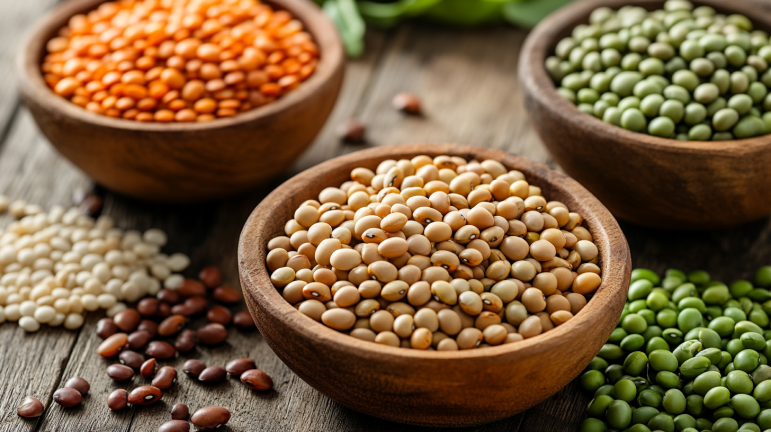
Top 5 Plant-Based Proteins Recommended by Experts
While there are plenty of plant-based protein options, some stand out due to their digestibility and nutritional value. According to Professor Peng Xingyun from China Agricultural University, here are the top 5 plant-based proteins that should be on your plate:
1. Soy
Soybeans are one of the best plant proteins available, containing about 35% protein and boasting an absorption rate of over 90%. Processed soy products like tofu, soy milk, and tempeh are excellent meat substitutes.
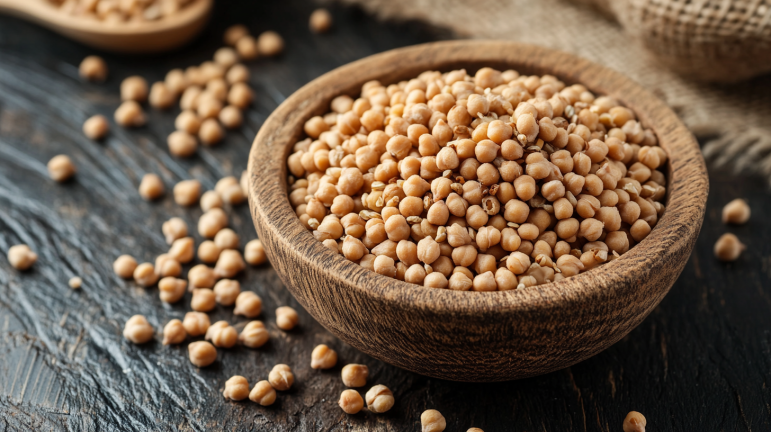
2. Peas
Although peas have an absorption rate of 0.69, they still provide all the essential amino acids the body needs. Compared to other plant-based proteins like quinoa, peas are affordable and easily accessible, making them a great option for most people.
3. Quinoa
With around 14.1% protein and an absorption rate of 0.7, quinoa is considered one of the best plant protein sources. It provides all the essential amino acids, making it an excellent option for vegetarians and vegans.
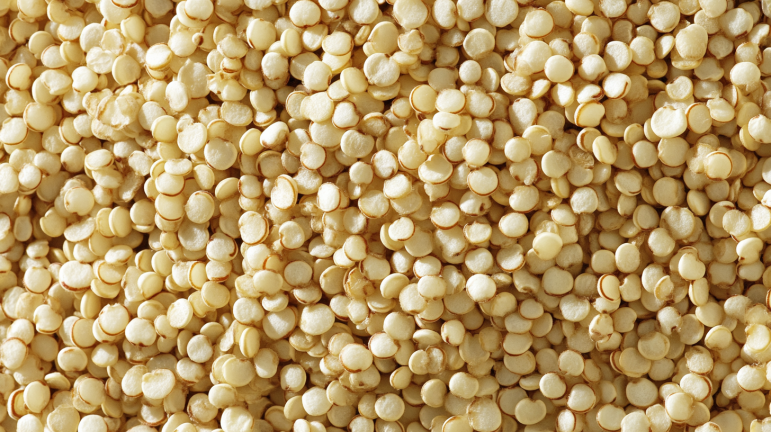
4. Buckwheat and Chickpeas
Buckwheat (9% protein) and chickpeas (23% protein) are rich in lysine, an amino acid that’s often lacking in staple grains like wheat and rice. When combined with other grains, they form a complete protein profile.
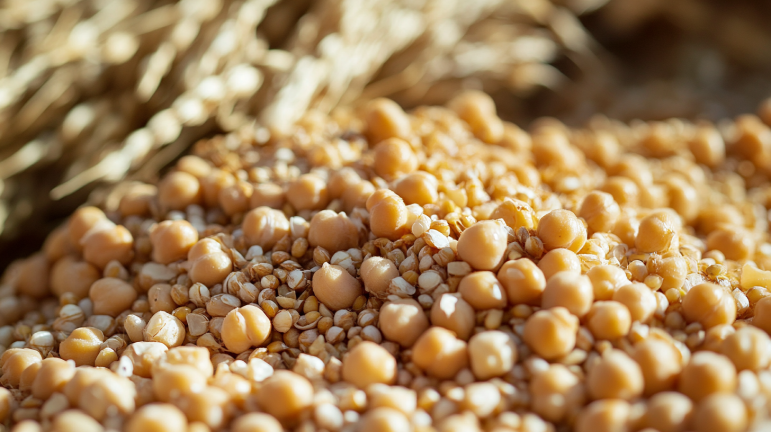
5. Peanuts and Wheat
While peanuts and wheat contain about 12% protein, their nutritional value is somewhat lower compared to other plant proteins. However, they still provide a decent amount of protein and can be a good addition to a balanced diet.
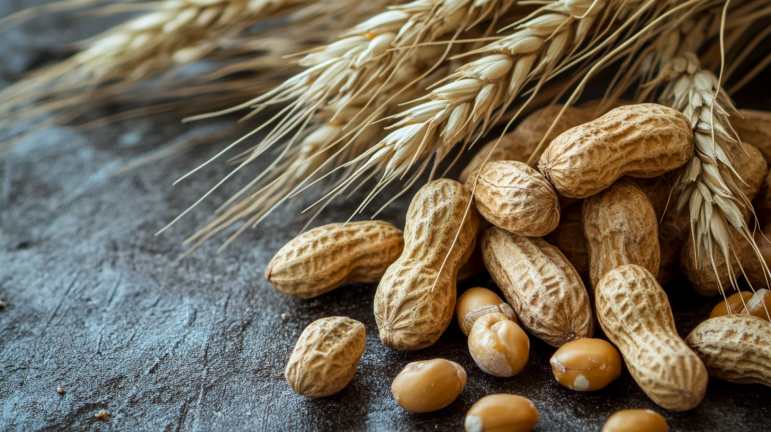
Conclusion
Incorporating more plant-based proteins into your diet can provide significant benefits for heart health and longevity. With their cholesterol-free nature, low saturated fat content, high fiber, and lactose-free status, plant proteins are crucial for maintaining overall health. Start replacing some of the animal proteins in your diet with plant-based alternatives to enjoy a heart-healthy, long life!







